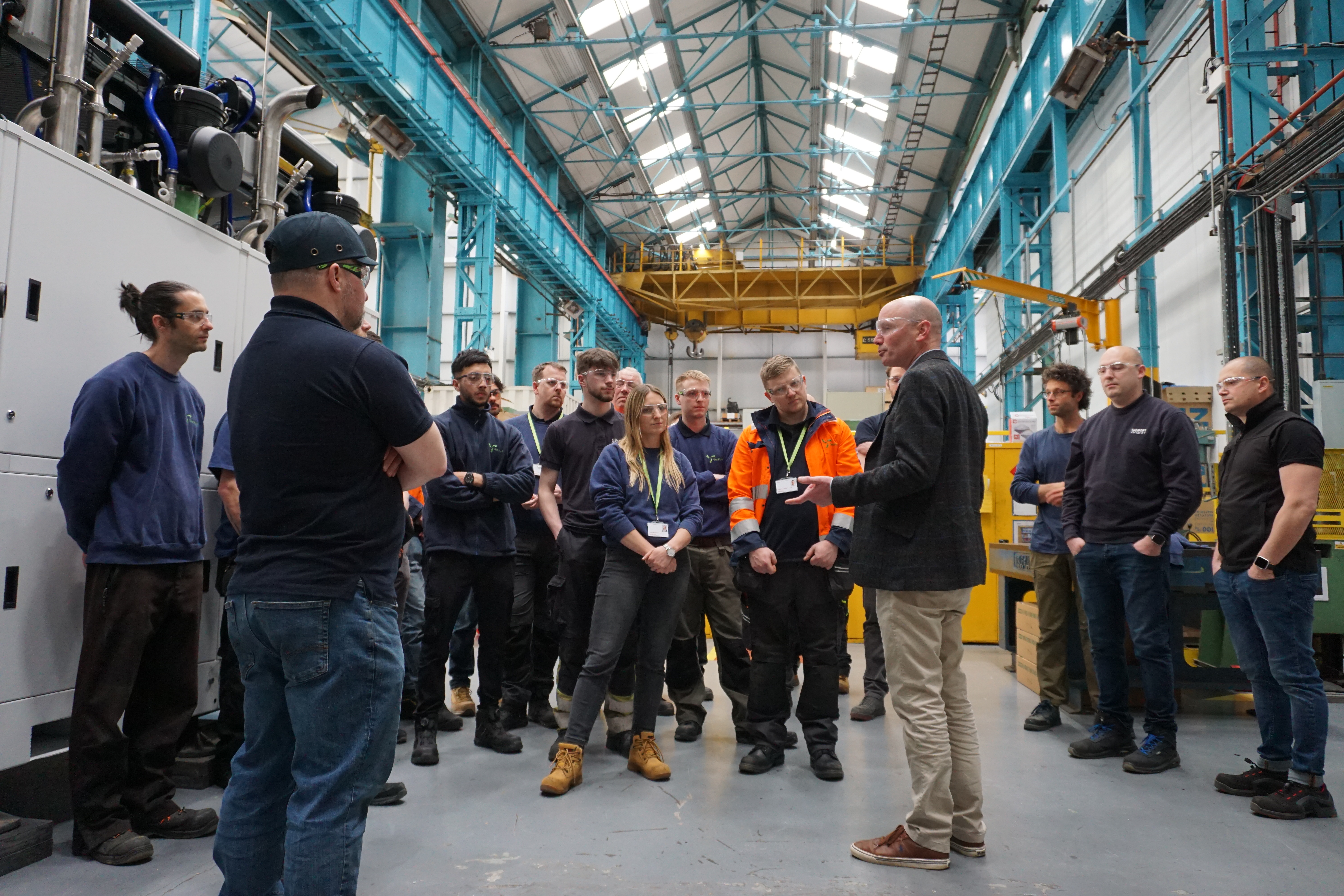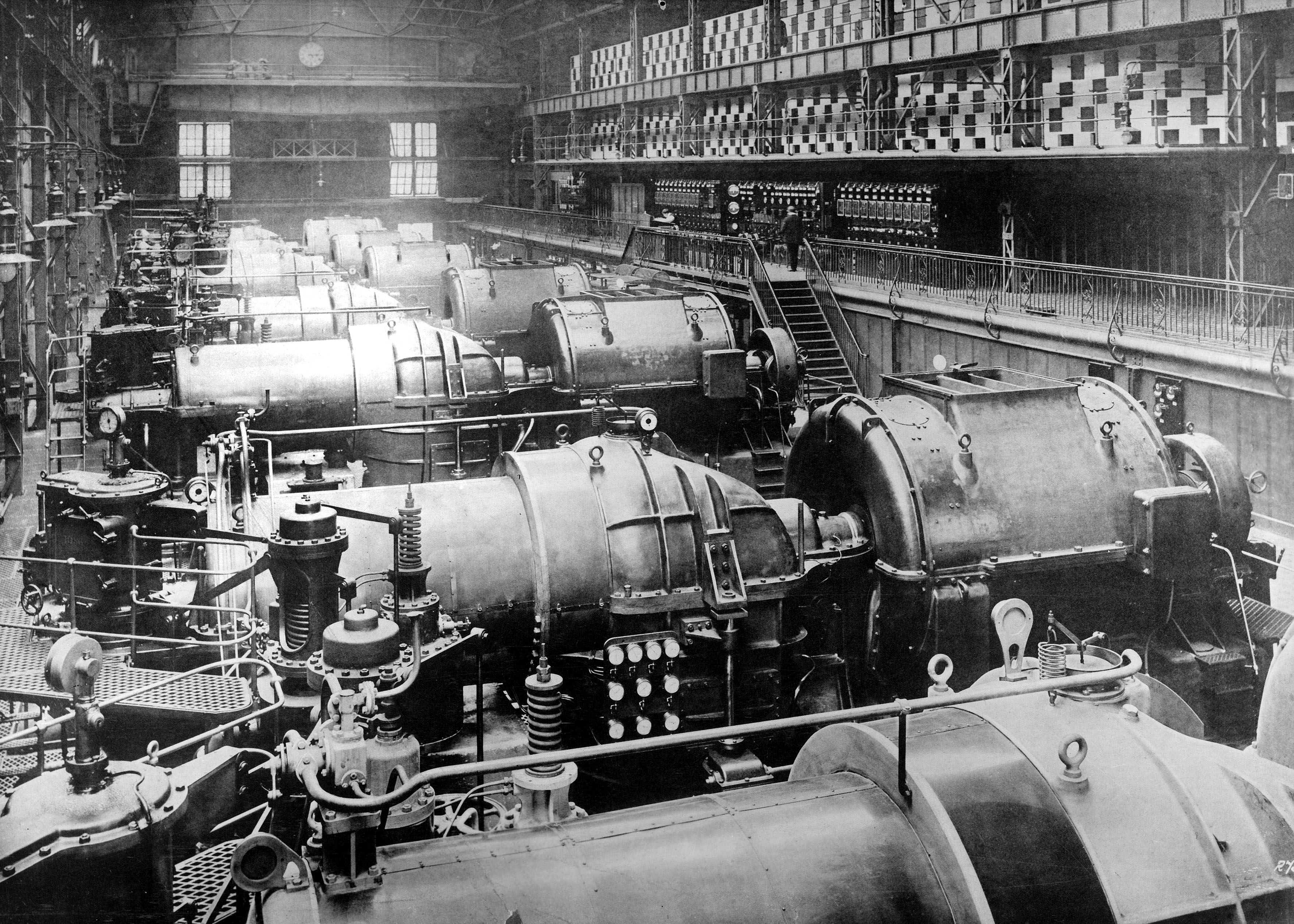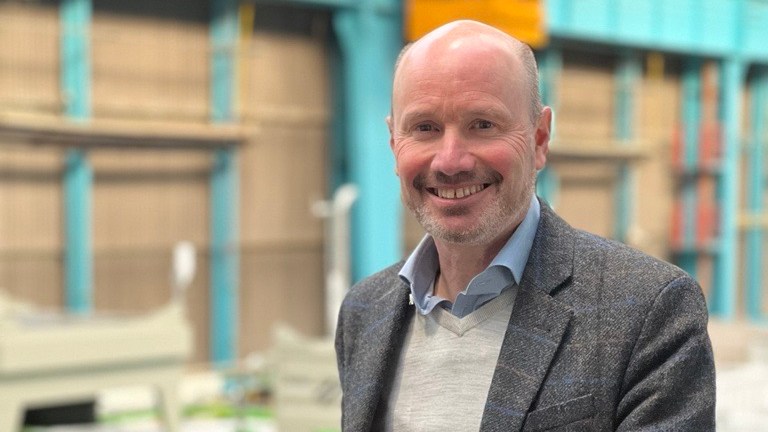GeoPura’s Green Hydrogen Generators Challenge Diesel Dependency
Andrew Cunningham is determined to replace diesel generators. He estimates that globally, there is a staggering $300 billion worth of installed diesel generator systems, with reliance present in both developed and developing economies, leading him to declare, “It is pretty horrible.”
To combat this, Cunningham, who is 61 years old, has dedicated the past 17 years to creating alternative generators that operate quietly and efficiently, emitting only water vapor instead of harmful emissions. These innovative devices are produced at Parsons Works in Newcastle, renowned as the birthplace of the steam turbine.
Among the early adopters of GeoPura’s technology are the BBC’s Natural History unit, as well as major film studios like Netflix and Disney. The reduction in noise pollution on set allows for uninterrupted filming when the director calls for action.
Construction firms are also turning to Cunningham for solutions to reduce their employees’ exposure to diesel fumes. His inventive approach has recently earned him the prestigious King’s Award for Innovation.
GeoPura, the company founded by Cunningham, specializes in hybrid power generators that he likens to “self-charging batteries.” They produce green hydrogen fuel by harnessing excess renewable energy to split water into hydrogen and oxygen through an electrolyser. This method contrasts with the more common practice of deriving hydrogen from natural gas, known as “grey” hydrogen, which releases carbon dioxide.
“We are likely the largest producer of green hydrogen in the UK, although we expect competitors to catch up soon,” Cunningham stated. His systems boast a 250kW capacity, with recharging capabilities via fuel cells. GeoPura has ingeniously integrated hydrogen fuel cells with battery systems and power electronics, ensuring safety and reliability. Its clientele includes both the National Grid and the Ministry of Defence.

Cunningham elaborated on the cost-effectiveness of producing fuel during times of renewable energy surplus, which can be as low as 3p per kWh, or even less if the energy provider is compensated. This ability to store or transport hydrogen enhances its economic viability and environmental benefits.
A seasoned entrepreneur, Cunningham has successfully built and sold numerous ventures, including AVT Technologies, which he sold to Reuters in 2002. After taking an early retirement in 2008, he invested the following 12 years into renewable energy innovations, ultimately leading to the establishment of GeoPura in 2019.
His initial work involved collaborations with various companies, including Siemens Energy, which now plays a crucial role in producing GeoPura’s generators at Parsons Works, reflecting a historical legacy that resonates with Cunningham. He noted, “It feels rewarding to engage with this heritage, and Siemens has been instrumental in producing our units according to our specifications.”

Siemens Energy is among the shareholders of GeoPura, alongside other prominent investors like Barclays, National Wealth Fund, General Motors, and Swen Capital Partners. Although Cunningham remains the largest individual stakeholder, he does not hold a majority share.
Going forward, GeoPura plans to seek additional investment to scale up production, including a planned Series B funding round aimed at international expansion by early next year. Currently, the company operates across Europe, with aspirations to penetrate the North American and Middle Eastern markets.
While share sales are significant, Cunningham is especially enthusiastic about securing asset-backed finance. A range of financial institutions, including Close Brothers, HSBC, and Siemens Financial Services, are providing financial support against the company’s generators and fleet of 70 tankers. Cunningham acknowledged the finance industry’s willingness to adapt, stating, “They have embraced our new technology, which took time but has significantly changed the business landscape, facilitating new equipment financing.”
With the temporary power market’s demands growing, access to capital is vital. Cunningham noted, “Combating climate change requires substantial investment; without billions being funneled into solutions, impactful change remains elusive.” He aims to manufacture 3,600 units by 2033, necessitating £2.5 billion, having already secured £114 million in equity and debt. Revenues are projected to increase significantly, with the company recently achieving £7.5 million in the fiscal year ending March 2024.
GeoPura is experiencing accelerated sales growth of its hydrogen power units (HPU). Currently, 56 units are available, and production enhancements at Newcastle will enable quicker manufacture of higher-capacity generators. The forthcoming HPU2, set to debut this summer, will be a half-megawatt module capable of delivering power up to 50MW.
Cunningham is optimistic about the UK’s advancement toward alternative fuel adoption and anticipates the establishment of hydrogen production facilities, bolstered by government incentives. He remarked, “While not all obstacles are resolved, progress is visible, and government actions are fostering improvements.”
GeoPura was recently featured in the Sunday Times 100 Tech ranking, highlighting Britain’s fastest-growing private tech firms.




Post Comment